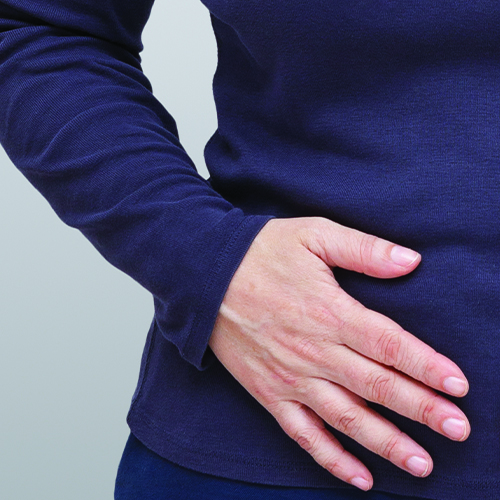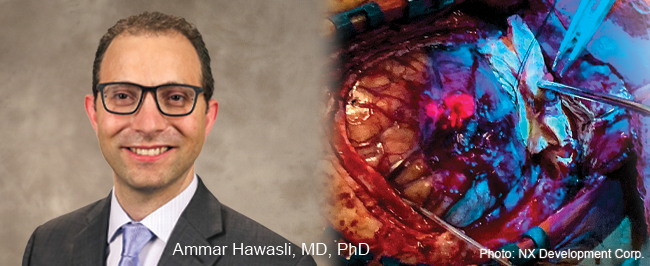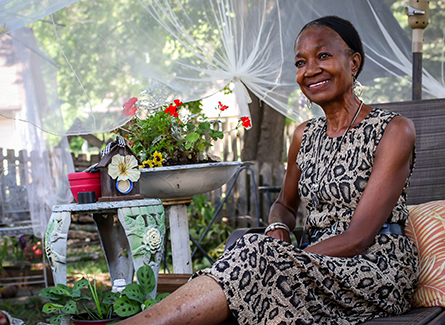 If you think healthy aging advice is for the 50 and over crowd, think again. The lifestyle habits you develop in your younger years can make a big difference in your overall health and function later in life. If you're an older adult, it's not too late to get started. Your body and brain benefit every time you make healthier choices.
If you think healthy aging advice is for the 50 and over crowd, think again. The lifestyle habits you develop in your younger years can make a big difference in your overall health and function later in life. If you're an older adult, it's not too late to get started. Your body and brain benefit every time you make healthier choices.
Keep Moving
“Patients always ask me for medicine that has the fewest side effects and the most benefits,” said Michael R. Brown, DO, a family medicine physician with Meritas Health Smithville. “I always prescribe exercise.”
Regular exercise can:
- Boost your mood and improve mental health
- Help with weight management
- Improve sleep quality
- Increase your balance, strength and flexibility
- Reduce the risk of heart disease and diabetes
If you’re a healthy adult, aim for:
- 150 minutes of moderate-intensity aerobic activity or 75 minutes of vigorous activity every week
- At least two days of strength training every week
- Try to get 30 minutes of exercise most days of the week.
If you don’t have 30 minutes to spare, that’s OK. “Recent studies show exercise can be effective, even if it’s only in 10-minute episodes,” Dr. Brown said.
If you’re just starting out or getting back to a regular exercise routine, start slowly and work your way up. “It’s important to set goals and track them,” Dr. Brown
added. “Your doctor can help you come up with a plan to reach those goals safely.”
Dr. Brown's bottom line: Be active, and enjoy all the benefits that come from it.
Search our health-related classes and events.
Eat Healthy
Wine and cheese get better with age. With proper nutrition, the body can, too. “I encourage my patients to look beyond reaching their ideal weight to the general benefits of eating healthy,” said Samantha M. Fawcett, MD, a family medicine physician with Meritas Health Gashland. “Eating healthy plays a big role in how we feel and how much energy we have.”
As your body ages, fat begins to replace muscle, your metabolism slows downs and your level of physical activity may taper off. To balance these changes, your total daily calorie intake should decrease, too. Being overweight increases your risk for heart disease and can cause problems in your hips, knees and feet as your lower body tries to support the extra weight.
Dr. Fawcett suggests:
- Checking food labels for added sugar
- Choosing whole foods over processed foods, which have added salt, sugar and preservatives
- Putting half of your meal in a separate container right away when you get takeout
- Tracking what you eat for a week to become more aware of how many calories you actually eat and drink
- Trying a meal delivery company; they offer different dietary options and portion control
Dr. Fawcett's bottom line: It's never too late to start eating healthier.
Read about our outpatient nutrition counseling services.
Love Your Brain
Contrary to popular belief, memory loss and aging don’t have to go hand-in-hand. “Your brain can learn, create new pathways and produce new brain cells at any age,” explained Stephanie Ramirez, MA, CCC-SLP, a speech-language pathologist who works with people at every stage of dementia in NKCH's Outpatient Rehabilitation Services Department.
Regardless of your age, there are simple things you can do to help keep your brain sharp, starting with following the six pillars of brain health.
- Food and Nutrition. When you eat smart, you think better
- Medical Health. Get regular medical care, and control your health risks
- Mental Fitness. Never stop learning; you have to use your brain, or you’ll lose it
- Physical Exercise. Move your body
- Sleep and Relaxation. A good night’s sleep can reenergize you, and relaxing reduces stress
- Social Interaction. Stay connected with friends and family
When should you worry that memory loss isn’t age-related? “When memory loss impacts your daily life, and you have difficulty completing tasks you’ve always done, like balancing a checkbook or managing your medications, it’s a good idea to check in with your doctor,” Stephanie advised.
Stephanie's bottom line: It's never too early or too late to develop healthy brain habits.
Related Articles

March 8, 2020
3 Sneaky IBS Triggers
For people with irritable bowel syndrome, spring may spark a flare-up in symptoms

May 30, 2024
5 Nutrition Tips for a Healthier Lifestyle
Healthy eating and proper nutrition play a big part in maintaining good health. Here's how to improve your nutrition habits.

July 7, 2021
5-ALA Fluorescence Guides Neurosurgeons for More Complete Resections
Neurosurgeons Ammar Hawasli, MD, PhD, and Stephen Reintjes Jr., MD, with Meritas Health Neurosurgery, are now using a progressive treatment that allows for the more precise removal of malignant gliomas and glioblastomas.


